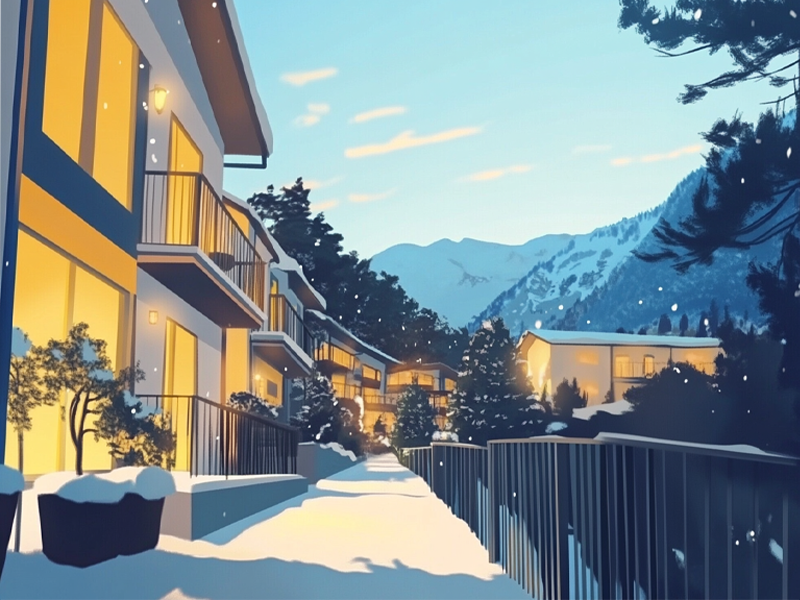Do HOAs Allow Airbnb? What Hosts Should Know About CC&Rs
A question many owners and arbitrageurs ask when considering running an Airbnb is “Does my HOA allow short-term rentals?” And like many aspects of the Airbnb phenomena, the answer isn’t straightforward or consistent and could likely change in the future depending on your own HOA’s bylaws. But homeowners associations aren’t to be messed with—and your relationship (and compliance) with the HOA can make or break your Airbnb business.

The Complicated Relationship Between HOA Rules & Airbnb Hosts
In the short-term rental market, it is always better to ask permission than forgiveness, because with the chance for substantial losses or even lawsuits, there may not be a whole lot of forgiveness to go around.
That’s why our biggest PSA to short-term rental hosts who have a property with a Homeowners Association is to do these three things:
- Make sure it’s legal to Airbnb your residence in your city
- Verify your insurance protects damages and liability for your short-term rental business before you list.
- Ensure the community authority, whether HOA, COA, or POA, allows short-term rentals like Airbnb and Vrbo.
Let’s discuss how HOAs and other community boards can restrict, regulate, and even ban Airbnb rentals, and how hosts should navigate these muddy waters.
What’s an HOA & What Do They Do?
A homeowners association’s purpose is to define, maintain, and enforce community standards. In communities with HOAs, residents own and upkeep their property, but the HOA owns and maintains common areas like pools, spas, and gyms. These are called “deed-restricted” communities because the HOA rules are connected to each resident’s property deed.
Rules within HOAs are referred to as CC&Rs, which stands for Covenants, Conditions, and Restrictions, and lays out standards for things like:
- How the property is used
- How the property appears and is maintained
- Insurance and lender protection requirements
- Restrictions regarding parking, pets, occupancy, etc.
- Assessments and procedures for correcting violations
- Consequences for violating the CC&R agreement
More Than an HOA: About POAs and COAs
There are also related situations a short-term rental host should keep in mind: both COAs (Condominium Owners Associations) and POAs (Property Owners Associations) use with CC&Rs:
- In a Condominium Owners’ Association (COA), residents individually own their condominium unit along with a percentage of the shared common areas. The COA itself doesn’t own property, but member dues fund the cost of maintenance and repairs for shared amenities such as roofs, hallways, and pools.
- A Property Owners’ Association (POA) is typically broader in scope than an HOA or COA. POAs often oversee large master-planned communities, rural developments, or land designated to remain partially undeveloped. They manage overarching rules, infrastructure, and amenities that affect all owners within the community.
How & Why HOAs Restrict Short-Term Rentals
HOAs want to maintain a community’s social norms, safety, appearance, and environment. That means everything from consistent landscaping and exterior paint colors to HOA Airbnb rules. Some people who live in closed communities enjoy that HOAs don’t allow STRs; vacationers bring the potential to disrupt peace and quiet, heightening uncertainty and risk. As a result, HOAs may reject or strictly regulate Airbnbs in favor of resident privacy and security.
The most common HOA responses to the Airbnb phenomenon are:
- Disallowing residents from renting their properties short-term, mid-term, and/or long-term
- Occupancy limits
- Requirements of short-term rental guests, which may include restrictions on pets, fees for using amenities like the pool or tennis courts, registration requirements, noise limitations, etc.
- Charging a fee to homeowners who want to rent short-term
- Proof of insurance specific to short-term rentals, like a Commercial Homeowners policy
It’s not enough to look at the CC&Rs and local Airbnb laws, find there’s no outright ban on Airbnbs, and list your place. There are details you should ask your HOA that may be less straightforward, like “Are there restrictions on when I can or can’t rent to vacationers?” or “Are there specific rules my guests must follow to use common area amenities like hot tubs, pools, or grills?” These are all important to straighten out with your HOA before starting your short-term rental business.
HOA Regulations (Usually) Overrule Local Airbnb Laws
It’s important to remember that even if it is legal to short-term rent your property at the state or local level, whether your HOA allows Airbnbs normally trumps local STR laws. Because, despite not being a governmental authority, an HOA’s authority is legal because you signed your name to a document agreeing to the CC&Rs. However, state Airbnb laws can override or modify HOA authority, which is something we’re seeing more of across the country.
HOA Influence Across the Nation
On the West Coast, California restricts HOA and COA authority under Civil Code §4739, which prevents associations from banning leases of 30 days or more. This leaves HOAs the ability to prohibit Airbnb and VRBO stays of less than 30 days, while maintaining any guest requirements outlined in the CC&Rs.
On the East Coast, Florida Statute §720.306(1)(h) limits HOA authority over rental caps, stating that any rental restriction adopted after the law went into effect in 2021 only applies to (a) owners who purchased the property after the legislation went into effect and (b) owners who consent to this governing document. This means HOAs in Florida can still restrict mid- and short-term rentals (less than 6 months) and regulate rental frequency (e.g., no more than 2x per year).
There Can Be Legal Consequences for Violating HOA CC&Rs
We can see how state short-term rental laws better define what a short-term rental is and what rights homeowners should have to prevent a slew of unwanted STRs. In cases we are aware of, local STR regulations don’t prevent HOAs from banning stays under 30 days or from enforcing other rules associated with renting, such as noise violations and pet restrictions.
So, what happens to a host who short-term rents their property without HOA permission? Depending on the community agreements, HOAs may:
- Restrict access to community amenities until the violation is resolved
- Levy daily fines against the owner until the violation is resolved
- Revoke all rental rights in perpetuity
- File a cease against the owner in civil court
Operating a short-term rental without HOA approval can result in fines, a fee structure, or it may be escalated to civil court if an HOA sues Airbnb hosts.
Why Short-Term Rent in a Deed-Restricted Community?
Many property owners and investors are drawn to HOA governed communities for one reason: the amenities! Consider a Florida subdivision—you might get a pool, hot tub, gym, pickleball court, and private waterfront access included in a property purchase. Amenities are very attractive to vacationers; they’re looking for a convenient, all-in-one experience at an Airbnb. So, if the HOA allows Airbnbs, it can actually be a savvy move to host a short-term rental.
Essential Questions to Ask Your HOA Board Before Listing on Airbnb
It’s all about asking the right questions before you make a purchase on a property or decide to short-term rent a property you already own.
Some of these are questions to ask yourself as a potential Airbnb host, and others are questions to ask the HOA board:
- Does the HOA have requirements for owners to short-term-rent their property?
- What are the minimum stay restrictions for Airbnb guests? What about maximum restrictions?
- Does the HOA have behavior and occupation restrictions for Airbnb guests?
- How many times a year can I short-term rent my property? There may be restrictions on frequency or what time of year renting is allowed.
- What are the parking parameters for renters? For instance, how many cars guests may bring, where they should park, whether they need a permit, etc.
Uncover The Gaps In Your Policy
Learn 10 essential questions about short-term rental coverage to ask your insurance agent to understand your policy’s gaps.
"*" indicates required fields
Verify Your Short-Term Rental Insurance Complies with HOA Demands
There are many risks to hosting an Airbnb in a closed community, and the HOA can take on some of that risk by proxy. For instance, what if a guest slips and falls at the community pool? They may hold you and the HOA responsible, and most likely, you’ll both be named in a lawsuit. Maintaining the right Commercial Homeowner’s insurance policy and listing your HOA as an Additional Insured is the best way to manage risks and work cooperatively with the HOA board.
With many cities now requiring robust property and liability insurance, it’s important to protect your short-term rental with the proper insurance for the unique exposures that come with hosting. Presenting proof of the right insurance to the board can offer peace of mind for all involved.
Proper’s customized vacation rental insurance policy can protect the host from risks like:
- Guest injury liability
- Liability for provided amenities on- and off-premises
- Guest damage including intentional and accidental
- Liquor liability
- Loss of revenue protection
- Airbnb squatter protection
Proper Insurance offers a premiere policy designed specifically for the risks of short-term renting. We built a comprehensive policy that protects your property, liability, and business revenue. With broad-spectrum coverage for risks small and large, and experts who know the STR industry, we protect short-term rental with a policy tailored to your needs.




